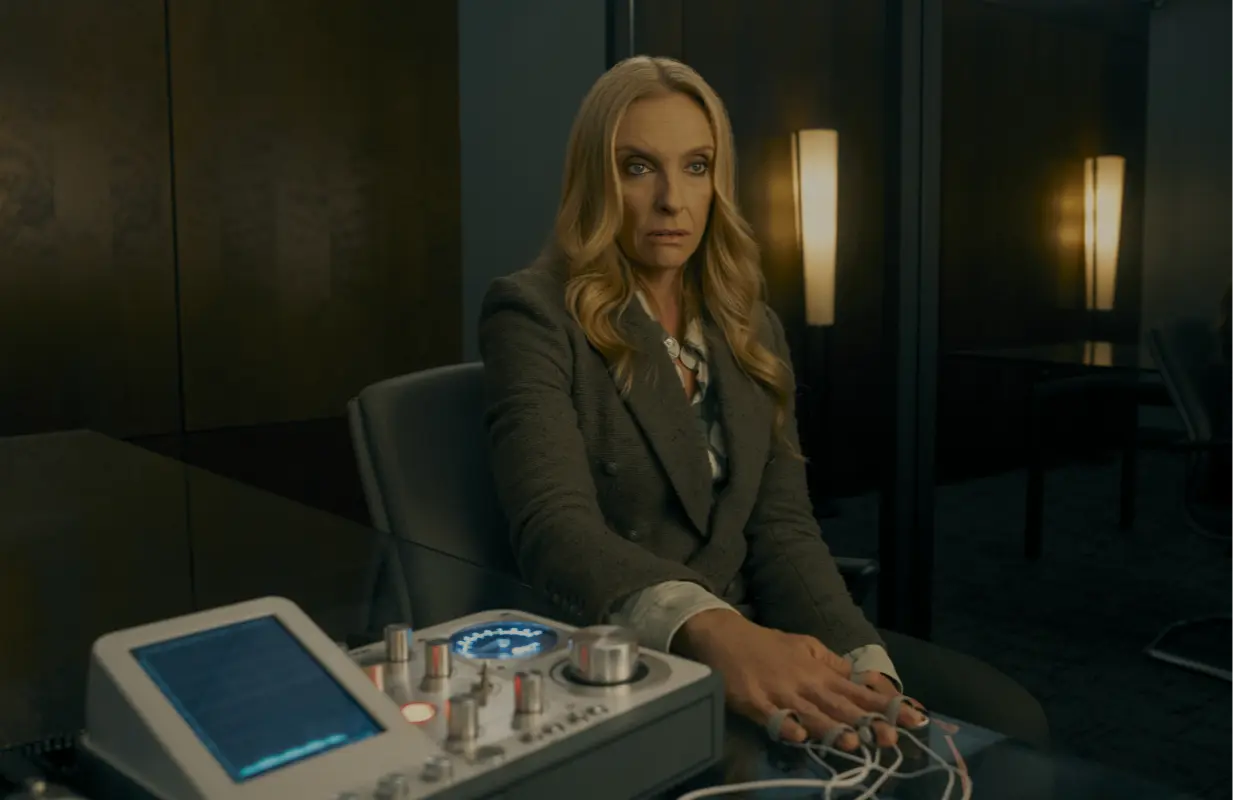Prime Video’s The Power Is Five Excellent Shows in One
-
 Toni Collette in The Power (Photo: Katie Yu/Prime Video)
Toni Collette in The Power (Photo: Katie Yu/Prime Video)The Power isn’t just one excellent show: It’s five. The premise of Prime Video’s series is that all the teenage girls in the world simultaneously develop the ability to shoot electricity from their bodies, and rather than funnel the effects of that evolutionary miracle through a single character’s perspective, it divides its attention among a quintet of protagonists. Each of their stories has a distinct tone and style, ranging from earnest family drama to crime thriller to pitch-black comedy. The parts hang together because they’re unified by the same, urgent question: What would happen if men couldn’t oppress women anymore?
The results, the show establishes, would be varied. Some would welcome the news with awe, just like Allie (Halle Bush), an abused American foster child who’s certain her new gift comes from God. Some communities would treat the “sparkling girls” as a threat. That’s what happens in Seattle, where Jos (Auli’i Cravalho) is under particular scrutiny because her mother Margot (Toni Collette) is the mayor. As the governor (Josh Charles) quarantines all the girls in Jos’ school and her own brother gets involved in a men’s rights group, she’s confronted with how terrified people are of change.
All the stories are loaded with these big ideas, but the show isn’t homework. Showrunner Raelle Tucker and her writing team — including Naomi Alderman, whose novel inspired the series — always keep things entertaining. Consider Tatiana (Zrinka Cvitešić), the wife of a brutal leader in a fictional European country. Like a character designed to be memed by gay men, she swans around in complicated dresses, walking a miniature horse on a leash and recalling her days as a gymnastics prodigy. When she confronts an abusive figure from her past, she gets her revenge with fiendish cleverness. You can almost hear viewers telling this queen to get her life. But underneath her vicious fabulousness — not to mention her justifiable fury at being treated like her husband’s sex doll — there’s a cruelty that gets more shocking as the season unfolds. As fierce as she is, Tatiana’s also the embodiment of an uncomfortable argument that any oppressed group can become the oppressor, if given the chance.
There’s a similar complexity in Allie’s story. After escaping her foster family, she finds herself in a convent, and soon enough, she’s a messianic figure herself. She not only uses her electric gift to perform wondrous acts of healing, but also hears what may be the voice of God (Adina Porter) as easily as she hears the radio. After she changes her name to Eve, the other runaways at the convent become her flock. There are deeply moving scenes in which young women, not unlike many of their counterparts in the real world, recall when they learned that being female meant being fearful of men for the rest of their lives. However, as sympathetic as viewers may find these moments, Eve’s unsettling use of her abilities proves once again that gaining power is not the same as creating a better world.
These provocative insights land because the characters, even Tatiana with her horse, are given opportunities to seem like people, not mouthpieces. Collette and John Leguizamo, as Margot’s husband Rob, have the easy chemistry of a lifelong couple. They have several lengthy scenes that let them explore the dynamics of their marriage, which adds emotional heft to their eventual conflict over what to do with Jos. Similarly, Tunde, an idealistic journalist played by Ted Lasso’s Toheeb Jimoh, has richly drawn friendships that clarify why he’s willing to risk his life to document how women are fighting the men who have harmed them. In one staggering scene, he’s covering a feminist Arab Spring, and he sees a mother speak to her soldier son while guns are pointed at her head. That conversation would be compelling on its own, but because viewers see Tunde there, with his own backstory already made clear, the confrontation is even more resonant.
Because it spends so much time developing these narratives, the show’s first season covers just a fraction of Alderman’s novel, which feels right. The world she created deserves to be lingered in, contemplated, and mined for drama that can only be hinted at in a book. As the series was being made, there were cast shake-ups and staff changes due to “creative differences,” but whatever the behind-the-scenes arguments were about, the art won out in the end. The Power emerges as an uncommonly confident epic about a permanently altered world.
The Power premieres March 31 on Prime Video. New episodes stream on Fridays through May 12. Join the discussion about the show in our forums.
Mark Blankenship has been writing about arts and culture for twenty years, with bylines in The New York Times, Variety, Vulture, Fortune, and many others. You can hear him on the pop music podcast Mark and Sarah Talk About Songs.
TOPICS: The Power, Adina Porter, Halle Bush, John Leguizamo, Naomi Alderman, Raelle Tucker, Toheeb Jimoh, Toni Collette